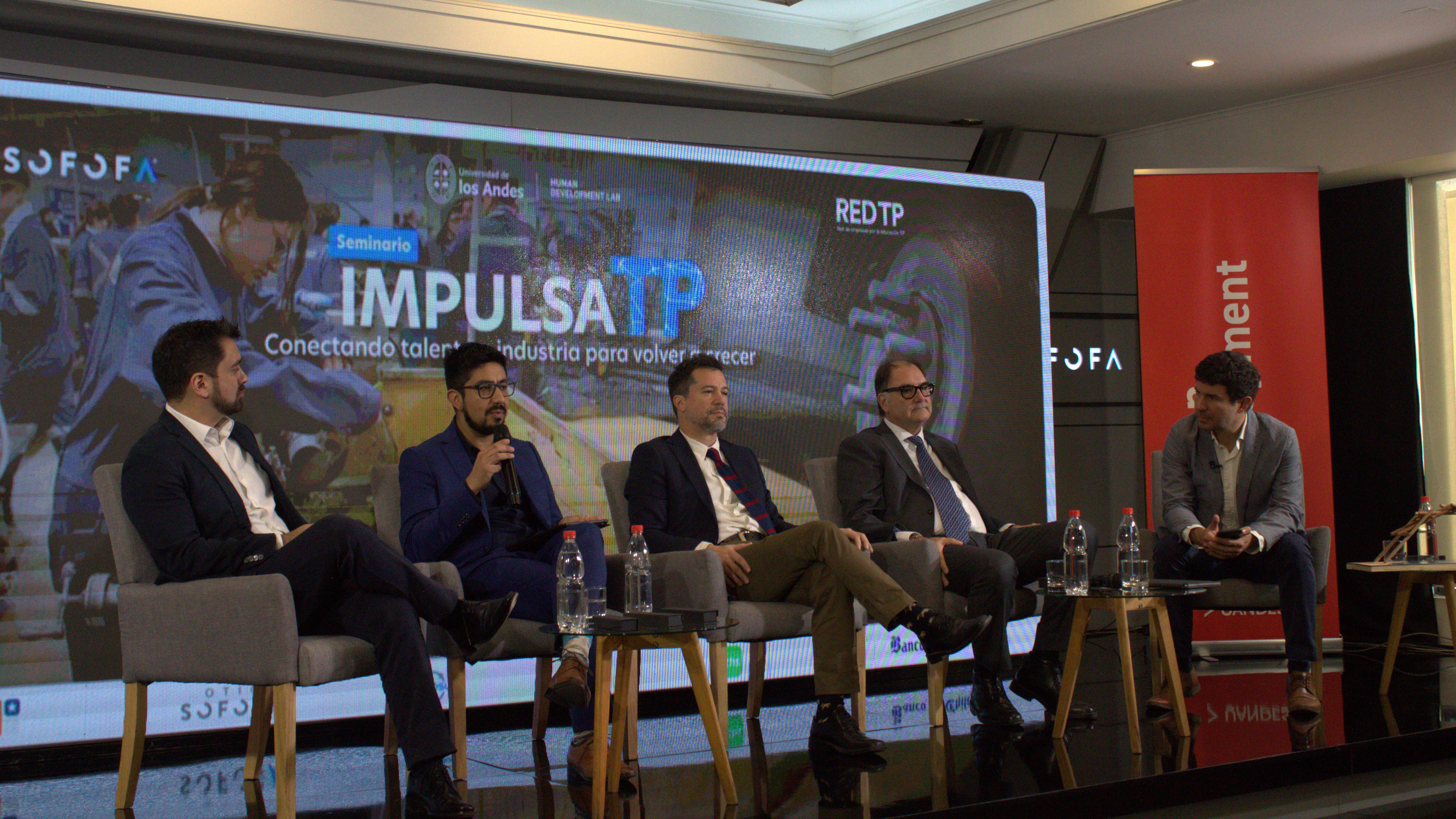
On Thursday, August 14, the Human Development Lab at Universidad de los Andes took part in the seminar “Impulsa TP: Connecting Talent and Industry to Grow Again”, held at SOFOFA’s Auditorium. The event began with a welcome coffee at 8:00 a.m., followed by presentations and a central panel discussion.
The opening remarks were delivered by Rosario Navarro, President of SOFOFA, and Álvaro García, Dean of the School of Economics and Business, who highlighted the importance of strengthening the link between technical and vocational education and industry. The seminar brought together representatives from the education, business, and public sectors to discuss the strategic role of technical and vocational education (TVET) in the country’s development.
The panel, moderated by Andrés Barrios, Director of the Human Development Lab, featured Pablo Kusnir, Education Manager at SOFOFA; Cristián Lincovil, Executive Secretary for Technical and Vocational Education at the Ministry of Education; Cristián Lagos, Division Manager of People & Organization at Banco de Chile; and Lucas Palacios, Rector of Inacap.
Pablo Kusnir stressed the urgency of moving toward “a national agreement that becomes a State policy,” especially given that “Chile is a country of short political cycles” and that businesses play a key role in sustaining these initiatives. He explained that SOFOFA currently manages seven public technical high schools and provides support to nearly 300 institutions nationwide, which has allowed them to witness the wide territorial and educational diversity across Chile.
For his part, Cristián Lincovil emphasized the need to raise students’ expectations and strengthen ties with companies. He noted that in fields such as administration, they have managed to cut teaching times for certain content in half, creating space to integrate new skills and technologies into training.
The discussion also explored the potential of green hydrogen as a driver of development and underscored the importance of aligning efforts between the State, industry, and education so that technical and vocational training is no longer perceived as a second option. “The State’s role is to articulate and listen, because today those who truly have the experience are the institutions and companies in direct contact with productive realities,” Lincovil stressed.
The Impulsa TP seminar is part of the broader effort by diverse stakeholders to promote policies and strategies that effectively address labor market demands while contributing to the country’s sustainable development.